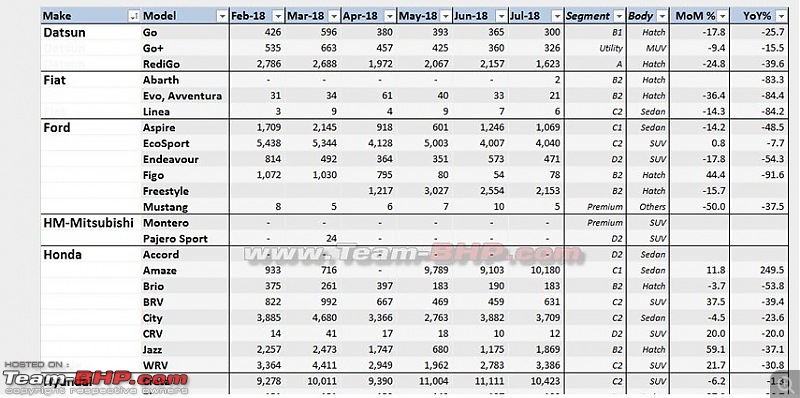Let me be the devil's advocate here (again, 11) and explain various scenarios in the next 3 years.
EVs require far fewer parts compared to ICE cars. That means fewer suppliers required. Complexity reduces significantly (by an order of 10x). The Chinese can bring their own ecosystem of suppliers for assembly (and nothing but assembly will be done here initially).
The Chinese govt, as GTO said, is betting the house on EVs. Not only for domestic consumption but also for exports. (1)
There is already strong competition in China amongst EV automakers. WSJ says there were 487 at last count. (2)
Even if 0.5-1 % of these survive, that will be more automakers than there here in India who are working on EVs earnestly..
When you're dealing with EVs, you're looking for 3 factors
a) cost b) reputation c) service
Cost will be among the best in the industry
Reputation/quality- there will be a shakeout in the Chinese EV market in the coming years. , Only the best will be able to jump across the Bay of Bengal. So one can be assured of their staying power. These EVs will easily pass standard NCAP tests.
Service- Since there are so few parts involved, service isn't as big an issue as it might be with ICE cars.
Since there's a lot of IoT stuff, expect remote diagnostics, and centralized service centres (Ather's is a blueprint here).
What the matter is right now is that Chinese EV makers are 5 years ahead of their counterparts in India. And that is a huge advantage. BYD is rolling out buses by October 2018 in Bangalore. BYD has supplied the entire fleet of buses to Shenzhen (which is all-electric now) (3) (4)
India is a very nascent market for EVs. The reason BYD is not bringing its EVs here (they're really good and cost-competitive amongst EVs in China) is because:
-No charging infrastructure. Our govt is talking, but nothing on the ground yet. Unlike China, which has incentivized and mandated private investment in charging infrastructure points (you can't buy an EV without pre-installing a charging point, and since you can't buy an ICE car in major cities without a permit now.. ) Just BMW putting up 80k charging points in China (5)
-No standardized EV charging points (6)
-The regulations to support EVs (domestic battery production, reduction in tax on battery, resistriction on sale of ICE cars in clogged cities, tax incentives on installation of charging points)..
Having said, the Chinese are far behind in battery technology compared to the Japanese right now. (7)
The gap will narrow but not by much in the next 2-3 years. But it will by 2023-4. Depends on new materials and innovation and what the global price of lithium is.
The Chinese are a bit confused, there's a bit of everything, govt pushing EVs, regulations, private market investment but at the end of it, consumers are still reluctant in adoption. (8) (9)
In some years, EVs will compete fair and square against ICE cars but until then, investments in India will be slow. Even in China, it's not a foregone conclusion that the Chinese will dominate the market, because the money is in premium cars. And its the Japanese, Europeans who dominate this. Will it be the same in India? (10)
You can draw your own conclusions.
Sources-
1)
https://www.bloomberg.com/news/featu...era-of-driving
2)
https://www.wsj.com/articles/china-h...ore-1531992601
3)
https://www.deccanherald.com/city/el...rt-690077.html
4)
https://www.wri.org/blog/2018/04/how...tric-bus-fleet
5)
https://insideevs.com/bmw-to-install...ints-in-china/
6)
https://en.wikipedia.org/wiki/Chargi...tion#Standards
7)
https://www.wsj.com/articles/chinas-...ies-1508587203
(
Chinese batteries can’t yet match foreign equivalents on power or cost, acknowledged a spokesman for Guoxuan High-Tech, another big Chinese supplier. But with sales guaranteed in the captive Chinese market, “we believe we can close this gap in a short time,” he said.)
8)
https://www.wsj.com/articles/china-w...ars-1506954248
9)
https://asia.nikkei.com/Business/Bus...electric-road2
10)
http://www.autonews.com/article/2018...inas-ev-market
11)
https://www.team-bhp.com/forum/india...ml#post4439168 (Toyota & Suzuki to supply cars to each other in India)

 (2)
Thanks
(2)
Thanks
 (1)
Thanks
(1)
Thanks
 (1)
Thanks
(1)
Thanks

 (2)
Thanks
(2)
Thanks

 (3)
Thanks
(3)
Thanks
 (3)
Thanks
(3)
Thanks
 (3)
Thanks
(3)
Thanks
 (1)
Thanks
(1)
Thanks
 (1)
Thanks
(1)
Thanks
 (4)
Thanks
(4)
Thanks









